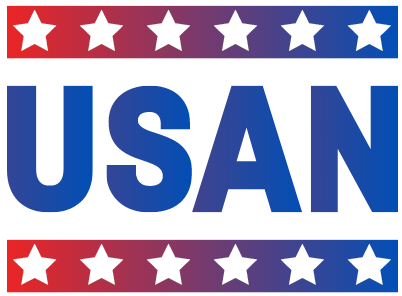USAN ON SEXUAL HARASSMENT
The public revelations regarding sexual harassment and abuse by Harvey Weinstein, Scott Rudin, Bill Cosby, James Taback and Kevin Spacey required action.
Led by USAN, Unite for Strength and member leaders from across the country, SAG-AFTRA took a multi-pronged approach to combatting sexual harassment and protecting our members, including an action by the National Board extending the union’s statute of limitations on disciplinary proceedings for sexual harassment from six months to 10 years.
For a timeline, click on how SAG-AFTRA has combatted sexual harassment.
LOBBYING FOR LEGISLATIVE PROTECTIONS
Working with local and national leaders to accomplish legislative reform, we addressed a series of ways our members are vulnerable in the work space. (i.e. TAKE THE LEAD bills)
Four sexual harassment bills were signed in 2018, mainly dealing with statute of limitations, consent, training, and holding a job over someone for sexual favors. All important advancements for the #MeToo movement and protecting our members.
President Carteris represented SAG-AFTRA on the Anita Hill-led Hollywood Commission, which released data from a survey of entertainment industry workers showing “pervasive issues of toxic workplaces, bullying and abuse in entertainment” and highlighting “the dire situation” among the industry’s assistants and production workers.
All of this collaborative work with our allies strengthened our power to change the culture of harassment, protect our members, and bring perpetrators to justice.
Strengthening our rules, guidelines and contracts:
Improving the industry’s best practices, our contracts now include groundbreaking protocols based on the Four Pillars of Change Initiative developed by SAG-AFTRA. Substantial gains were made in the 2020 TV/TH negotiations for performances and auditions.
For a clear and concise list of your rights on set for principals and background performers, see the Sex, Nudity and You member pamphlet developed by founding Time’s Up NY members Kate Rigg and Michelle Hurd (also a National Board member).
CREATING SEXUAL HARASSMENT HOTLINE & SUPPORT SERVICES
The hotline provided on your SAG-AFTRA membership card, 844-SAFERSET is connected to a network of qualified professionals and has answered the calls of hundreds of survivors looking to disclose harassment who have received a myriad of self-care services for their healing.
Recently those services have been gathered in a groundbreaking new reporting tool – the SAG-AFTRA Safe Place app. This app makes reporting safer, more discreet and easier for SAG-AFTRA members or anyone working under a SAG-AFTRA contract.
EDUCATING THE MEMBERS
President Carteris and former National Executive Director David White began a Podcast to better educate members on efforts to improve the union as a whole. An episode of the podcast was dedicated to examining the issues around sexual harassment, explaining how the union is addressing them, and updating members on the establishment of a vetted community of intimacy coordinators and an intimacy coordinator update this past May.
ESTABLISHING INTIMACY COORDINATORS
ON SET
Just as stunt coordinators ensure the safety of all on set when there are stunts involved, it is essential that we have trained intimacy coordinators working as advocates/liaisons between actors and production during intimate scenes or hyper-exposed work. These intimacy coordinators may also provide choreography/movement coaching to provide professional guidance in such scenes.
However, the safety and dignity of our members in such vulnerable scenes depend on the careful vetting of those intimacy coordinators. To grow the available pool of trained and registered ICs, SAG-AFTRA has worked with the intimacy coordinator community to establish the first industry-wide standards for training, registration, and continuing education of ICs.
Requirements for vetting include training in gender identity and sexual orientation, anti-racist/EDI, bystander intervention, and mental health first aid and trauma stewardship. ICs must pass a state and federal background check, and have appropriate experience on a variety of sets.
It is all part of building a safer work environment for our members.
Titles used for identification purposes only

